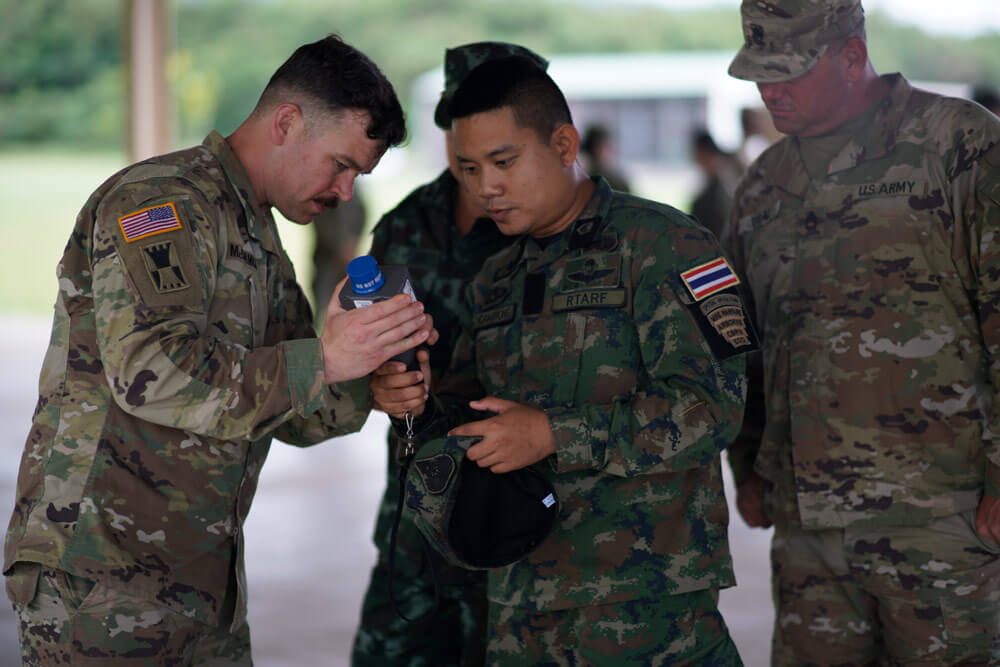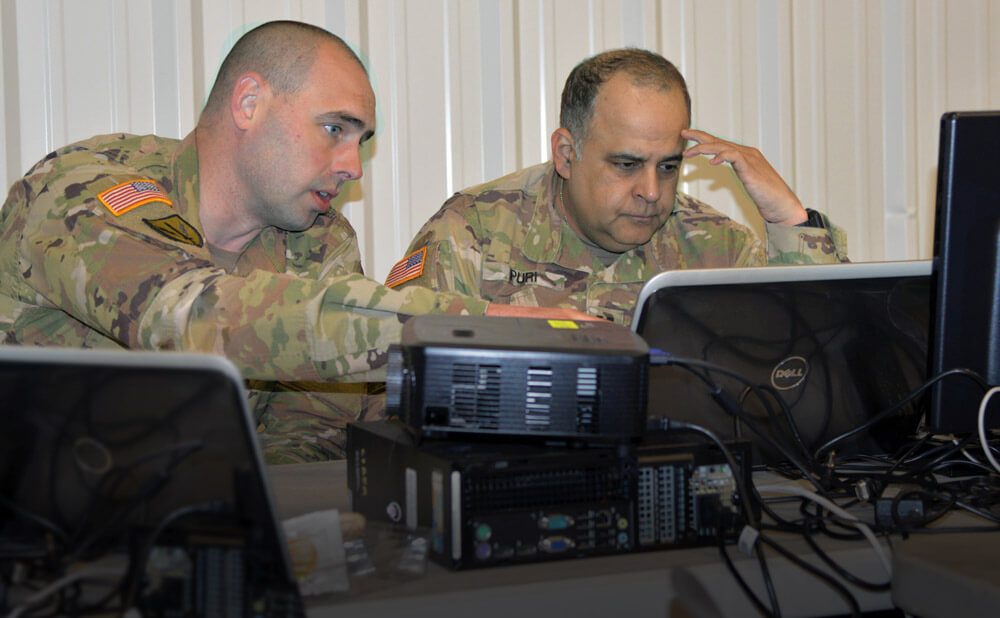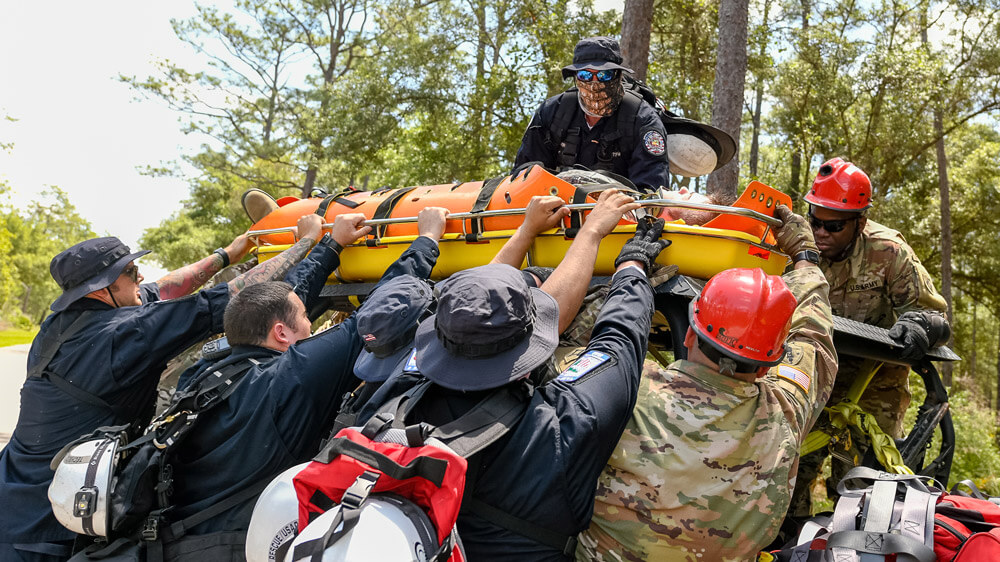Washington Army National Guard LTC Ricky Thomas jokes that since taking command of the 10th Civil Support Team (CST) in late 2016, he has yet to unpack his suitcase. Looking at his calendar, he knows his bags will remain packed for a while.
“When I first came to the CST, we didn’t have as much going on,” he says. “But we made it a point to start doing outreach in the community, and not just Washington communities but across the first responders everywhere.”
In his time with the 22-person team, LTC Thomas has been all over the world. His team’s primary focus has been at home in Washington, but trips to Saipan, Guam, Alaska, Hawaii, Florida and Washington, D.C., among many others, underscore the importance of the CST.
The team specializes in identifying and assessing suspected weapons of mass destruction, advises civilian responders on appropriate actions through on-site consultation, and facilitates the arrival of additional State and federal military forces.
“When we aren’t on-site for an incident, we are training and teaching,” LTC Thomas said. “We are always training.”
The requirements to join a CST are similar to requirements for many other jobs in the military. You have to obtain the proper military occupational specialty, but that’s not where the training stops. In just two years, the 10th CST has invested more than $4 million into training its members.
“It can take a minimum of three years to get qualified for our positions and trained up to do the job in the field,” LTC Thomas said. “We have had a lot of turnover the last few years. Part of that is people being promoted, people taking different jobs in the Guard or moving on to the civilian sector, but we find a way to still accomplish the mission with less.”
In 2017, the 10th CST supported the Presidential Inauguration and the Washington State Governor’s Inaugural Ball, worked with Seattle Fire and Police at every Seattle Seahawks home game, responded to numerous suspicious packages and assisted with illicit drug investigations. This year, the unit has already been pulled in numerous directions.
“In January and February, we had the honor of working at Super Bowl 52 in Minneapolis alongside other CSTs,” LTC Thomas said. “And we [had] members heading to Hawaii and Guam, Louisiana, Nevada and conducting training here at home – all before the end of March. Our schedule has a return trip to Saipan and a trip to Thailand before the end of the year as well.
“It’s an honor to be considered one of the premier Civil Support Teams in the country,” he added. “We work hard to build and maintain our relationships.”
Whether it’s supporting local authorities with illicit drug busts, monitoring the air quality at sporting events or training other CBRN professionals, the 10th CST shows no signs of slowing down.
“We are ready to take on missions and continue to build relationships,” LTC Thomas said. “I think everyone here likes being busy and having a full schedule. It shows how important this job truly is.”
BY CPT Joseph Siemandel, Washington NATIONAL GUARD



